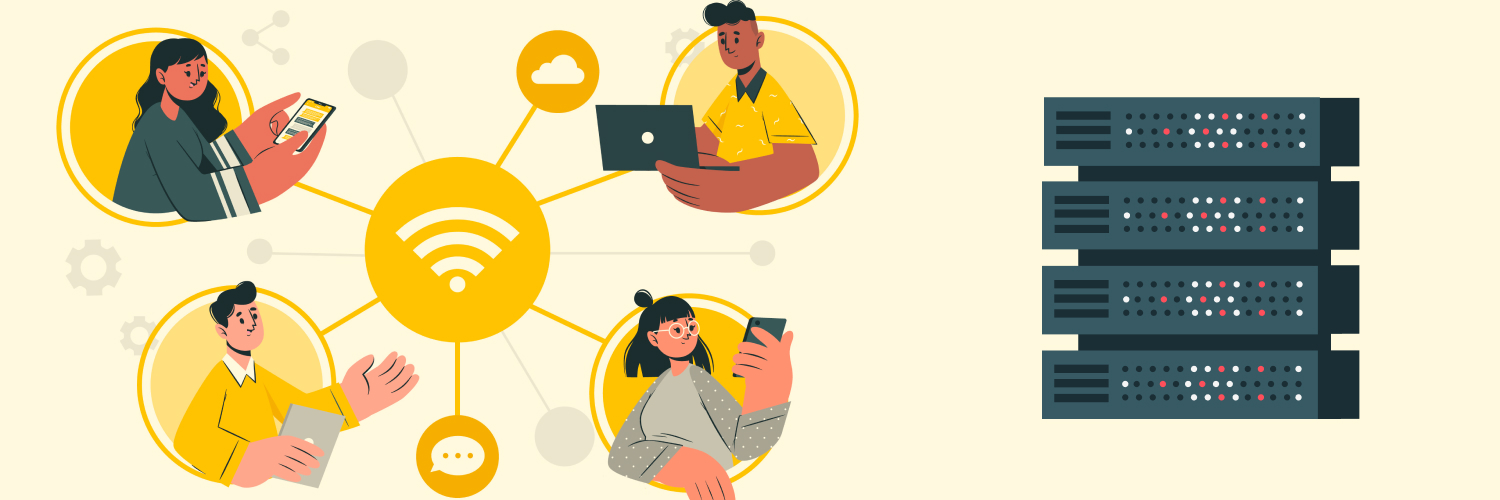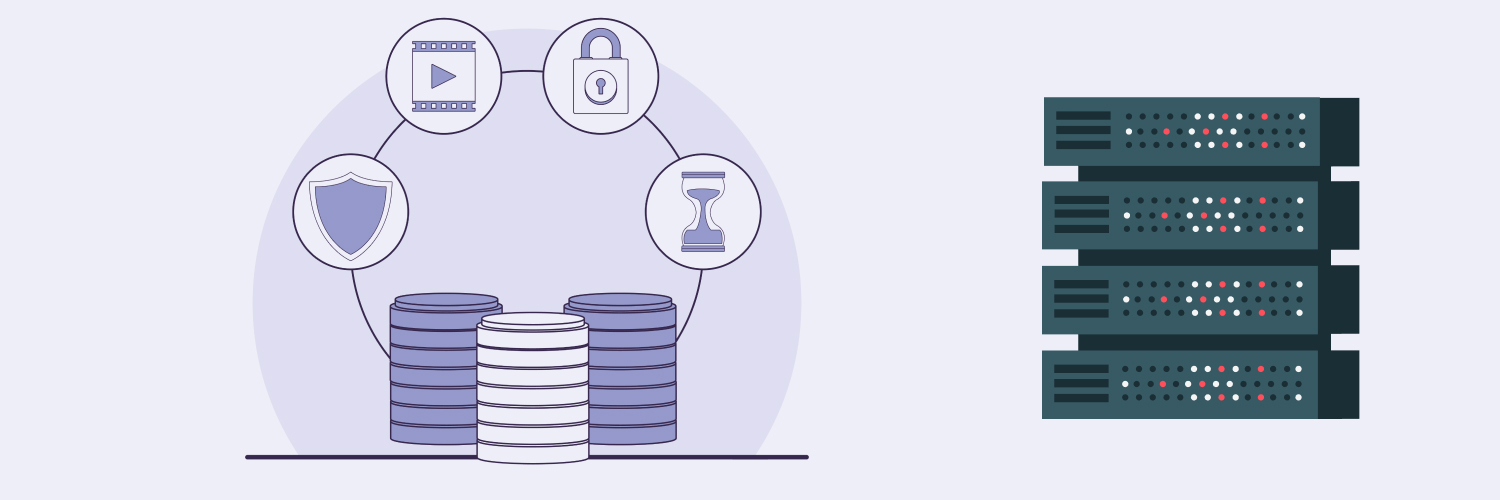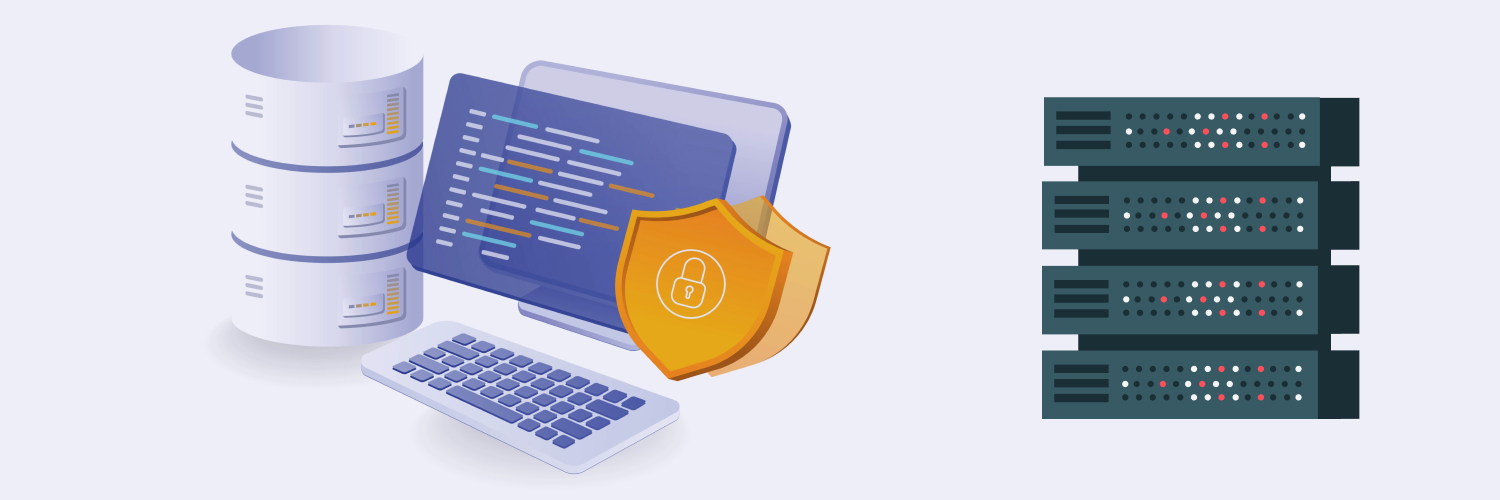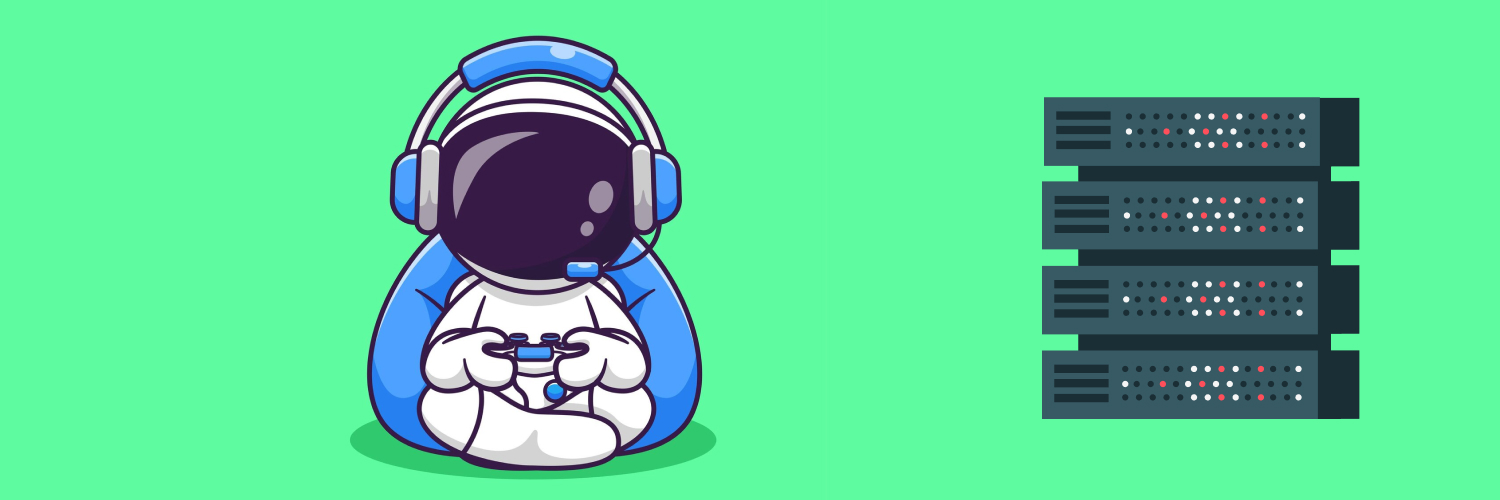What Can Someone Do With Your IP Address? (And How to Protect It)
Your internet protocol (IP) address, which is a unique digital identification number for each device within a designated computer network, essentially functions to identify your device on the internet. An IP address is formatted as a series of numbers separated by points (such as 123.456.7.89). But what can an IP address tell you? Your device’s IP address contains information about your approximate geographical location. To send or receive any kind of information online, your device must have an IP address; without it, your device can’t communicate with websites or other online services. Think of your IP address as a delivery address for your online activity.
Much like other forms of identification in your daily life, such as your Social Security Number, driver’s license number, or passport, your device’s IP address is an essential identifier. However, even though your IP is a necessity, bad actors can use this piece of identifying information to obtain valuable information, such as your location, online identity, and other data you wouldn’t want falling into the wrong hands.
But what can people do with your IP address? In this article, we will discuss how someone can obtain your IP, what they may be able to do with it, and ways to protect your IP from criminals who may use it in nefarious ways.
All About IP Addresses

Your device, whether it be a laptop, a tablet, a mobile phone, or a desktop computer, has both a public IP address and a private IP address.
Public vs. Private IP addresses
Your internet service provider (ISP) provides you with your public IP address, which is a unique identifier assigned to your internet connection. When you connect to the internet, your router identifies you using your public IP address.
Your public IP address is to your internet traffic and your mailing address is to your postal traffic. While your mailing address allows the postal service to deliver your mail to the correct recipient, your public IP address directs online traffic to the correct location. This ensures the content you seek — whether it be your emails, websites, social media profiles, or other content — reaches your device as expected.
Your private IP address, which is assigned by your router and not your ISP, is not used as broadly as your public IP. Your private IP identifies individual devices that are connected to the same local network, such as your home Wi-Fi network. Each device — such as a smartphone, a tablet, a TV, or a PC — has its own private IP address. This enables the content received via your public IP to route correctly to a particular device on the network.
IPv4 vs. IPv6 IP addresses
You may also notice in your settings that your device has two separate IP addresses: one called an IPv4 address and another called an IPv6 address.
IPv4 stands for Internet Protocol version 4, which was introduced in 1983. Most of the internet still uses 32-bit IPv4 addresses.
IPv6, or Internet Protocol version 6, was created in 1999 after internet experts grew concerned that all of the possible IPv4 addresses would soon be used up. To combat this problem, they created IPv6, a more complex system of addresses containing additional numbers as well as letters. Because IPv6 uses 128-bit internet addresses, the number of possible IPv6 addresses is astronomically larger than the number of possible IPv4 addresses.
How Can Someone Get My IP Address?

Because your public IP address is visible on the internet to anyone who knows where to look, it is not necessarily illegal for someone to see your IP address. However, not everyone who could potentially access your IP has innocent intentions.
Motivated hackers and scammers often know how to dox someone’s IP with very little difficulty. There are a wide variety of ways that motivated individuals can obtain your IP address. We will detail several of these methods below.
When you send an email, often, your IP address is embedded in the header of that email transmission. This is especially true with certain email providers, such as Yahoo! and Microsoft Outlook.
Borrowing your device
Any number of websites provide a “find my IP” service. If someone wishes to obtain your IP address, all they have to do is borrow your laptop or tablet for a minute or two; they can easily navigate to one of these websites and receive your IP address in an instant.
Convincing you to click a link
To access any website, your device shares its IP address with the server hosting that website. Any time you click a link, whoever owns the server hosting that particular content can see the IP address of the visitor’s device. Phishing attacks can often trick individuals into clicking on links that appear innocent.
Accessing web server logs
Again, each time you visit a website, you share your IP address with the web server that hosts that website. The owner of that server can then access any IP addresses stored on the server.
Connecting to your router
If someone with bad intentions gains access to your router configurations — whether by using one of your devices directly or by hacking — they will instantly gain access to your IP address.
Tapping into your wireless network
If your home Wi-Fi network is not protected by a password or other security method, a hacker can easily access your network and obtain your public IP address. This is also true for anyone you allow to access your Wi-Fi, including invited guests.
Clicking online advertisements
Just like clicking a link, clicking an online ad provides your IP address to the owner of the content at the other end of the ad. While many ads are legitimate marketing tools, some ads created by hackers are designed solely to steal IP addresses and other personal information.
Using social media platforms
Many social media platforms, by design, collect and “hoard” user data from visitors to their websites. That user data may include your IP address. Whether the social media platform makes a habit of collecting this information should be located in the platform’s terms of service documentation.
Creating fake free Wi-Fi hotspots
It’s relatively simple for a hacker to create a fake Wi-Fi hotspot and make it publicly available. Anyone who connects to one of these hotspots can inadvertently make their IP address known to the hackers, who may also have the ability to infect the user’s device with malware during this connection.
Posting in online forums
Administrators of many online forums and discussion groups have the ability to view the IP addresses of all visitors to their forum. This is necessary since admins sometimes need to identify a rule-breaking user by IP address to ban them from the forum.
Using peer-to-peer torrent sites
Any time you download peer-shared content from a torrent site, you make your IP address visible to other users.
Accessing free proxies
Much like free or public Wi-Fi networks, using free proxies can be more trouble than they’re worth. Free proxy servers often do not hide their users’ IP addresses, which allows others with criminal intentions to access those IP addresses.
What Can Someone Do With Your IP Address?

In the event that a malicious person obtains your IP address, it’s highly unlikely that person is wondering, “What can I do with someone’s IP address?” There’s a much better chance that a person already has plans in mind for their ill-begotten information.
Instead, you may be wondering, “Someone has my IP address; what can they do with it?” Although your IP address doesn’t reveal such sensitive information as your phone number, Social Security Number, or apartment number, hackers can still use it in negative and even criminal ways. Below are some of the ways someone with bad intentions can use your IP address against you.
They can access your geographical location
Once someone has access to your IP address, it’s as simple as typing that number into any of the countless IP lookup tools available for free on the internet to obtain your geographic location. While your IP address generally doesn’t reveal your exact location down to the street address, it can reveal the city, state, and country where you are located.
Although your location can’t disclose your personal information to a hacker, such as your home address or phone number, it is linked to your ISP. A hacker with sharp enough skills can use a variety of tactics to obtain more sensitive information. For example, they could use a network attack to steal personally identifiable information (PII) from your ISP.
With just your name and geographic location, all someone needs to do is perform a simple online search to come up with a goldmine of information about you, including your physical address and your social media profiles, which could easily be used to intrude upon your real-life privacy. For example, if you happen to post on social media that you are going on a trip, any criminal worth their salt can use that information to target your house for a burglary while you’re out of town.
Another criminal use of your IP address is the practice known as swatting. Swatting is a criminal act that occurs when someone gives your IP address to authorities along with a false threat, causing the authorities, often a SWAT team, to show up at the victim’s door.
They can track your online activity
You may think that working from home protects you from your employer tracking your online activity, but that may not be the case. Although it is an invasion of their employees’ privacy, many employers nonetheless engage in tracking their workers’ online activity in an attempt to curb online shopping, gaming, or accessing social media via the workplace network.
They can target you with personalized spam
You may have noticed during recent years that advertising has become targeted to a sometimes alarming degree. Many advertisers embed tracking codes within online articles, product listings, and more. This software records your IP address and sends targeted ads, whether by email, on other websites, or on social media platforms, based on your online browsing activity. For example, you may look up an article about yoga poses to try for back pain. The next time you check your social media timeline, you may find it flooded with ads for yoga mats, workout clothing, and pain relief products.
They can hack your devices
Using your IP address, some hackers can obtain a brute-force connection to take over any of your devices. When this occurs, they can not only steal the information contained on your device, but they could also potentially install malware on it, further exposing you to theft of information and other dangers, such as a ransomware attack.
They can carry out DoS/DDoS attacks
Once someone obtains your IP address, they can carry out a denial of service (DoS) attack against you. A DoS attack, which entails flooding your IP address with server requests, can prevent you from accessing online resources, including websites, email, online accounts, and other services.
A distributed denial of service (DDoS) attack is similar to a DoS attack but involves multiple servers, creating even more overwhelming traffic to overload your system or network.
They can steal your personal information
Personally identifiable information (PII) includes such data as your phone number, address, date of birth, and Social Security Number. Clever hackers can use your PII to steal from you or to impersonate you. Using your ISP, they can obtain this information using a phishing attack to strongarm your ISP to hand over your personal information.
They can sell your IP address on the dark web
In some cases, the bad actor who steals your IP address may not seek to use it themselves. Instead, they can just as easily cash in on your stolen IP address by selling it on the dark web to even more nefarious individuals.
They can turn you into law enforcement for copyright infringement
Many countries, including the United States, have strict copyright laws in place. Some of these countries even monitor torrenting services, watching for IP addresses that download copyright-protected movies, music, and television shows. If your IP address is associated with such downloads, law enforcement can demand your ISP turn over your name, address, and other identifying information in order to charge you with copyright infringement.
They can commit crimes under your name
If a malicious actor obtains your IP address, they can use it to impersonate you on the internet. They can route their unsavory online activity through your IP address instead of their own, making it appear that you have been up to no good. Depending on the severity of the hacker’s crimes committed using your identity, you could find yourself facing criminal charges for buying drugs, downloading child pornography, making death threats, setting up murder-for-hire plots, accessing the dark web, or making threats against national security.
In a case like this, you may face a lengthy and costly legal battle while trying to prove you did not commit these crimes.
They can prevent you from accessing services
Using your IP address alone, a hacker can ban or blacklist you from accessing certain online services. For example, if you anger the administrator of an online game, they could maliciously blacklist your IP address across the whole gaming platform.
What Do I Do if Someone Has My IP Address?

So what happens if your IP is leaked or stolen? Once someone has access to your IP address, there is very little you can do to stop them from using it.
The good news is that you can change your IP address whenever you want to. The easiest way to accomplish this is to unplug your router for several minutes and then plug it back in; when the router starts up again, your IP address will be refreshed.
There are other ways to change your IP address as well. Depending on the type of device you are using, the specific steps may differ.
Changing your IP address on a Windows device
To change your IP address on a device running Microsoft Windows:
- Simultaneously press the Win+R keys.
- In the Run dialog box, type Cmd and press Enter.
- Type Inconfig /Release.
- At the end of the scrolling text, type Inconfig /Renew.
Changing your IP address on a Mac device
To change your IP address on a Mac device:
- Click the Apple icon at the top left corner of the screen.
- Select System Preferences.
- Select Network.
- Select Advanced.
- On the following screen, type TCP/IP.
- Select Renew DHCP lease.
Changing your IP address on an Android device
To change your IP address on an Android mobile device:
- Tap Settings.
- Select Connections.
- Select Wi-Fi.
- Select your wireless network.
- Select Forget.
- Log back into your network. You will have a new IP address.
Changing your IP address on an iOS device
To change your IP address on an Apple device, such as an iPhone or iPad:
- Tap Settings.
- Select Network.
- Select your current wireless network.
- Under the IPv4 address, select Configure IP.
- Select Automatic.
How Can I Protect My IP Address?

There are a wide variety of ways you can prevent others from accessing your IP address. You can use any of these methods individually, or better yet, you can use them simultaneously for increased protection. Some of the simplest methods are detailed below.
Choosing the strongest privacy settings
Consider changing your privacy settings on all of your instant messaging, communication, and social media apps. Choosing the most protective privacy options ensures your IP address and your private information is hidden from hackers and others with bad intentions. Don’t pick up calls or open messages from unknown callers or senders.
A more robust router password
It’s also a good idea to consider changing your router configuration password. When it comes to the passwords that protect your sensitive information, the best practice is using complicated passwords that include upper and lower case letters, numbers, and special characters. You should also change your router’s admin login credentials on a regular basis.
Don’t use public Wi-Fi
Experts have long cautioned the public about the dangers of using public Wi-Fi networks. These unencrypted connections can give skilled hackers what amounts to free reign over any connected devices. From relatively innocent snooping to installing malware on your devices, hackers can perform highly malicious actions on the devices of users who dare to connect to a public Wi-Fi network.
Be careful who you allow to use your Wi-Fi network
Any external device, be it a mobile phone or a laptop, could potentially carry malware without the owner’s knowledge. Giving someone outside your household access to your Wi-Fi network could mean exposing your network — and therefore your devices — to any number of nasty viruses and malware. Besides that, anyone connecting to your network can, with the right knowledge, gain access to your IP address. It’s best not to allow anyone outside your household to connect to your personal Wi-Fi network. If you must, offering a guest Wi-Fi network is a practical way to allow trusted users to access the internet without compromising the safety of your personal network.
Don’t lend your device to anyone
Each of your devices has its own IP address. Anyone with access to that device can access that IP address. Someone with malicious intent who obtains your IP address can use it to perform misdeeds that range from annoying to criminal. It is in your best interest not to allow anyone, especially a stranger, to use your device.
Be wary of clicking on links and ads
Make it a personal rule not to click on links unless you were expecting them or sought them out yourself. Similarly, it isn’t a good idea to click on every ad you see online, no matter how tempting the product or service within might be. Links and advertisements are often used by hackers to lure victims into clicking something that can infect their devices with malware or expose their IP address for the hacker to obtain.
Switch off Wi-Fi when away from home
Whether you’re traveling, running errands, or simply gallivanting about, it’s a good rule of thumb to switch off your device’s connection to Wi-Fi when you are away from your personal wireless network. Turning off Wi-Fi during these times will prevent your device from connecting accidentally to open wireless networks without your knowledge, which can expose your IP address to anyone using the same open Wi-Fi network.
Switch to mobile data in public places
Telecommunications providers, such as your phone company, assign a temporary IP address to your device when you begin a new data session. If you connect continuously to your provider’s network, the cellular carrier usually refreshes your device’s IP address periodically, meaning your IP is exceedingly difficult to pin down. In addition, data transferred through cellular networks, such as 5G, LTE, and 4G connections, is encrypted.
Use proxy servers to hide your IP address
But what is a proxy server, and how can it keep your IP address secure? We will address this in depth in the following section.
Let Rayobyte’s Premium Proxy Servers Protect Your IP Address

One of the most efficient, effective ways to ensure your anonymity and the security of your IP address while using the internet is to connect through a proxy server. A proxy is a server that functions as a gateway or middleman between the user and the worldwide web, preventing cyber criminals from accessing the user’s private network while also shielding the user’s IP address.
Proxy servers help to manage requests for network resources by halting malicious requests and cyber attacks. Because proxies can theoretically replace a firewall or intrusion detection system, they’re a popular choice in high-security environments.
Using Rayobyte’s proxy server offerings to route your online traffic is one of the safest and easiest ways to hide your IP address. Rayobyte’s proxies feature proxy rotation, which allows you the ability to change your proxy server every time you visit a different website. Proxy rotation provides the assurance that the websites you visit never obtain your true IP address. What’s more, it’s automatic and hassle-free; Rayobyte handles proxy rotation in the background as you work and browse the internet.
Types of proxy servers to hide your IP address
Rayobyte offers several different types of proxy servers, which we will explain in detail below.
Residential proxies
Most users prefer the use of residential proxies over every other type. Residential proxies are considered the most reliable, fastest, and the most secure among proxies. This type of proxy server hides your IP address, which makes it difficult for the websites you visit to track you, determine your geolocation, or log your IP address.
There are many advantages to using residential proxies, which include:
- Authority. Residential proxies are actual IP addresses belonging to real people and associated with real ISPs. Traffic directed through a residential proxy is therefore considered highly legitimate, making residential proxies ideal to use when accessing websites or online services that require enhanced trustworthiness. Because most people use the internet through residential proxies, websites very rarely block them without a very good reason.
- Widespread geographic access. Rayobyte’s residential proxies use geotargeting functionality, which allows your web usage to appear to come from anywhere in the world. This makes residential proxies ideal for users who wish to access content or websites that are blocked in their actual geographic location. Rayobyte’s massive pool of high-quality residential proxies gives you the ability to visit websites without detection regardless of geolocation.
- High-speed access. Residential proxies are renowned for their fast speeds, which means they are ideal for online activities requiring rapid response times, like streaming video or playing online games.
- Simple setup and use. Rayobyte’s user-friendly dashboard makes setting up and using your residential proxy simple and fast. Rayobyte also offers 24/7 customer support.
Data center proxies
Data center proxy servers are stored in data centers, making them fast, low-cost, and readily available. However, their data center IP addresses make these types of proxies more easily identifiable than residential proxies, which can be a red flag to some websites. For this reason, some websites automatically ban all activity that appears to come from a data center IP address.
There are, however, many advantages to using data center proxy servers, including:
- Even faster access. Data center proxies are usually even faster than residential proxies due to the technology used to connect to them.
- High security. Because data center proxies are not based on real locations, they tend to be more secure than other types of proxies. This ensures your private data, including your IP address, is better protected.
- Cost-effectiveness. Data center proxies can be obtained at a lower cost than residential proxies with an equivalent degree of reliability.
- Reliability. Data center proxy servers are hosted on dedicated servers that use robust, reliable technology and are often monitored around the clock.
- Ready accessibility. Data center proxies are much easier to buy than residential proxies, making them more readily available to consumers and businesses alike.
ISP proxies
Offering the legitimacy of residential proxies and the speed of data center proxies, ISP proxies are the perfect combination of the two types. While ISP proxies are stored in data centers, they are issued by real internet service providers.
ISP proxies offer fast, stable connections that are just as difficult for websites to detect as residential IP addresses. Because Rayobyte places no limits on threads or bandwidth, this means significant cost savings for you. Rayobyte currently offers ISP proxy servers from the UK, the US, and Germany.
In Conclusion

Although the theft of your IP address itself doesn’t necessarily have to lead to damage to your online privacy and security, such theft can open the door for nefarious individuals to conduct a variety of cyber attacks and crimes. The effects of having your IP address stolen, sold, or misused can be far-reaching and range from vaguely irritating to life-altering.
After reading this article and learning about the various ways of protecting your online address, you should be less terrified of the question, “What can someone do with your IP address?” Now that you are aware of the potential risks of having your IP address stolen and misused, you can employ some or all of the recommended tactics to protect your IP from malicious actors.
Learn more about Rayobyte’s elite private proxies today.
The information contained within this article, including information posted by official staff, guest-submitted material, message board postings, or other third-party material is presented solely for the purposes of education and furtherance of the knowledge of the reader. All trademarks used in this publication are hereby acknowledged as the property of their respective owners.






